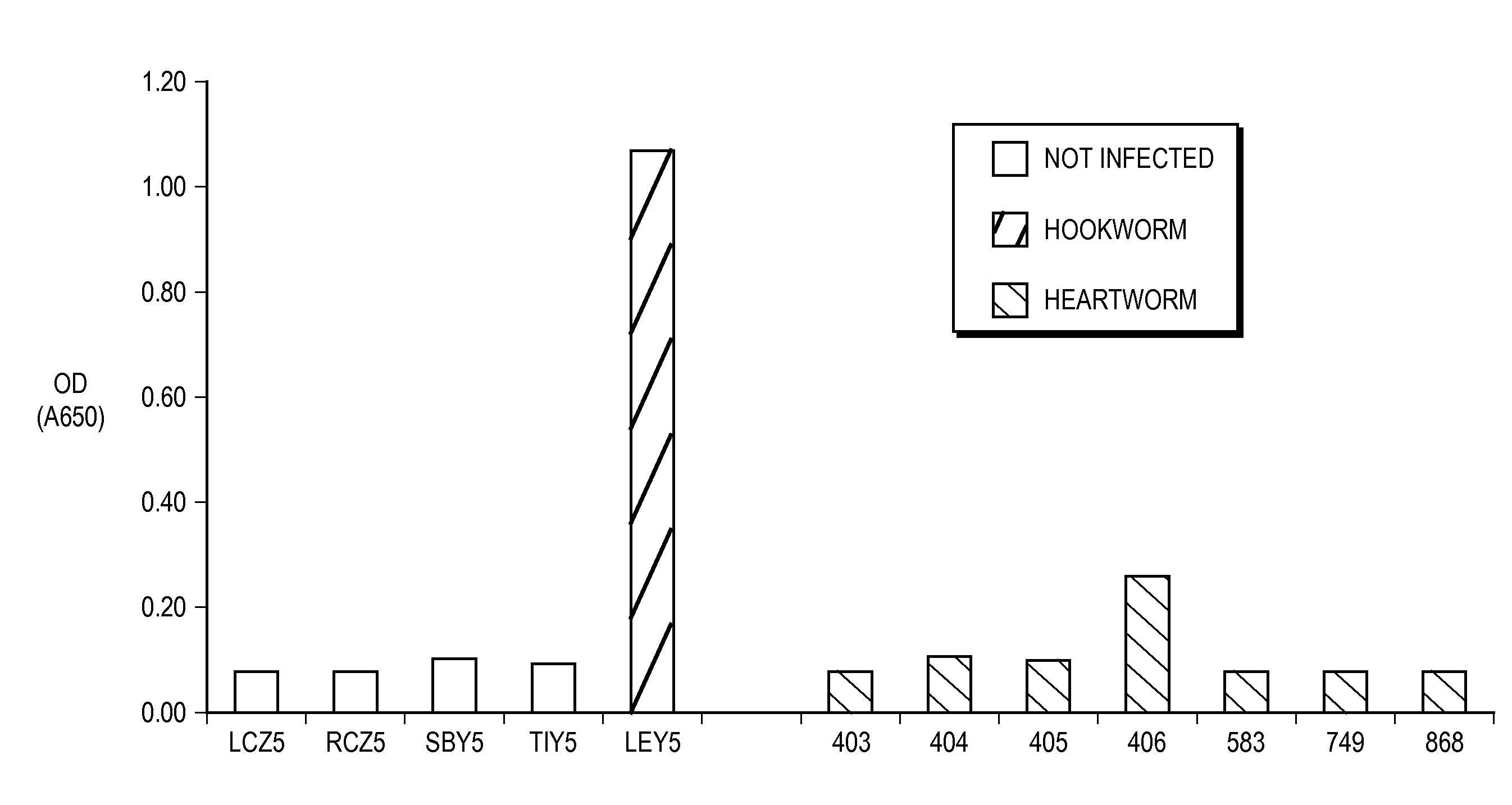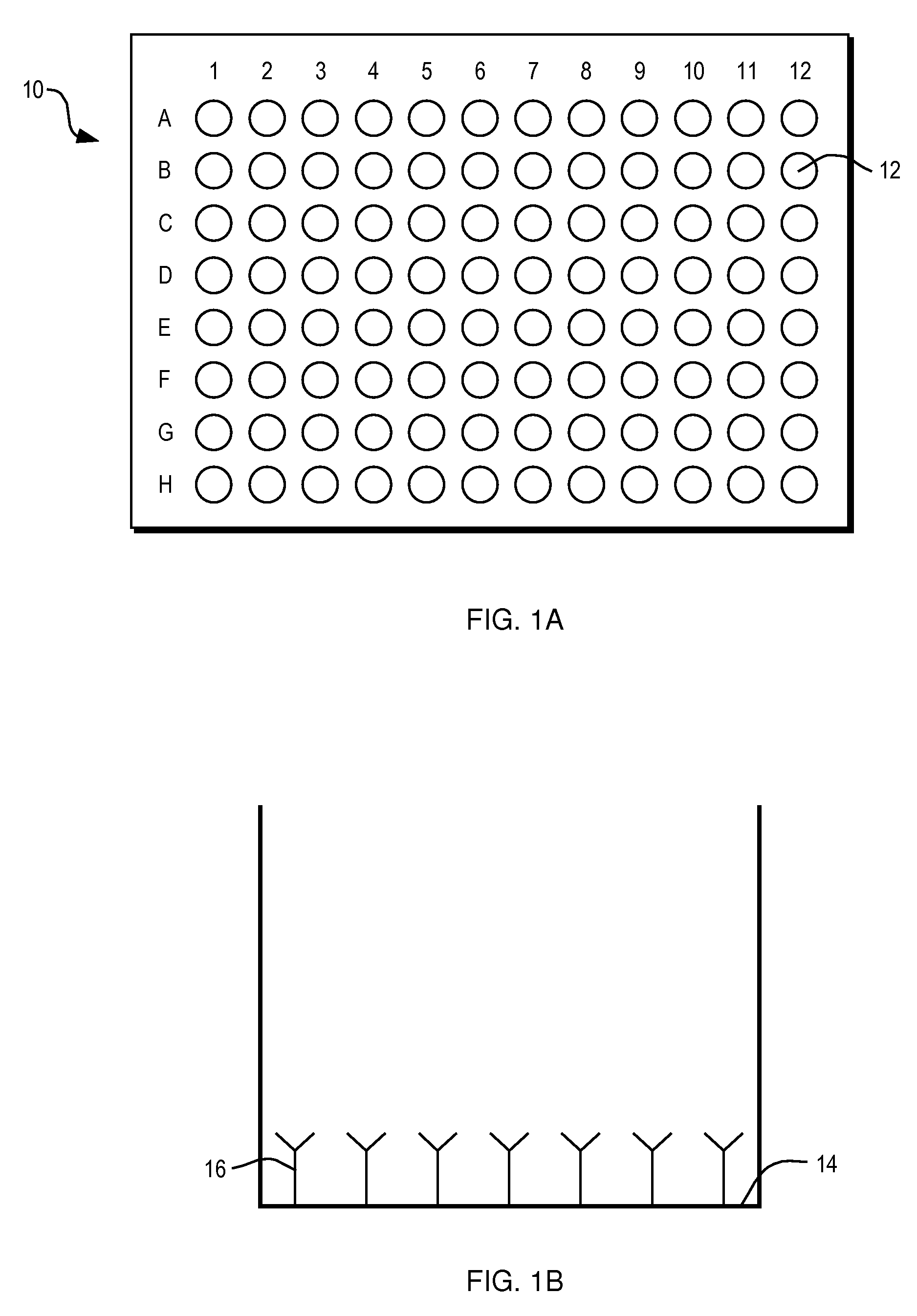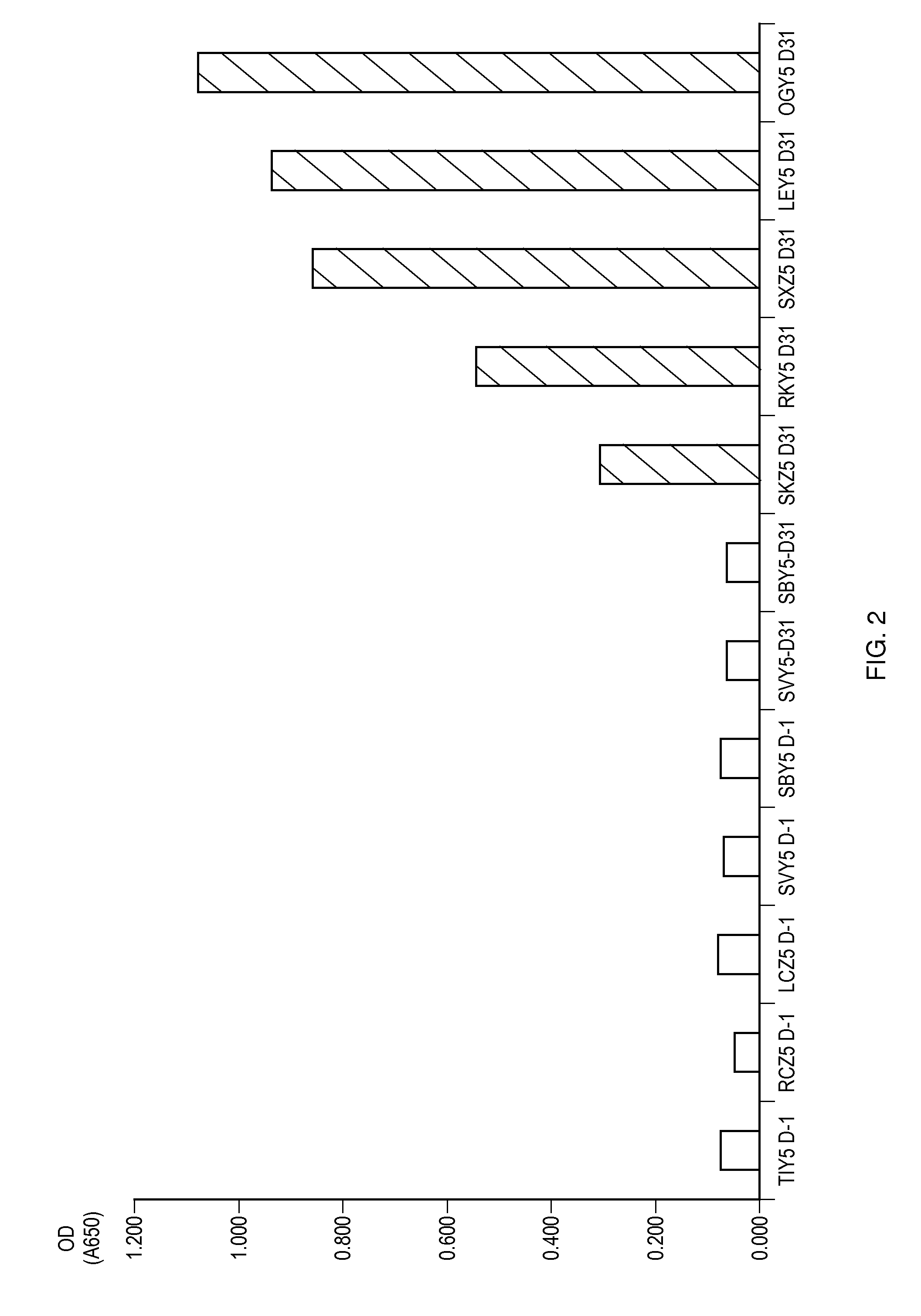Device, kit and method for hookworm antigen capture and detection
a technology of which is applied in the field of hookworm antigen capture and detection device, kit and method, which can solve the problems of host suffering serious illness, time-consuming and labor-intensive diagnostic method, and potential for misdiagnosis
- Summary
- Abstract
- Description
- Claims
- Application Information
AI Technical Summary
Benefits of technology
Problems solved by technology
Method used
Image
Examples
example
[0032]The following materials and methods were used to generate data described in Experiments 1-4 described below.
[0033]Infection and anti-helminth treatment of canine animals. For Experiments 1 and 2, parasitic nematode infection was effected by orally administering about 150-300 larvated eggs of either hookworm, roundworm, or whipworm to a healthy beagle canine, which was raised on a controlled diet throughout Experiments 1 and 2. Further, for Experiment 2 only, canines were treated at post-infection day 91 with Interceptor®, which is an anthelmintic agent commercially available from Novartis Animal Health Inc. of Basel, Switzerland, according to the manufacturer's protocol. It is well known by those of ordinary skill in the art that Interceptor® is effective for the removal of parasitic nematodes from canine animals. For Experiments 3 and 4, canine animals were not artificially infected as described for Experiments 1 and 2, but instead were those which developed infection to hook...
experiment 1
[0036]Anti-Ac-ASP-5 pAB specifically binds hookworm canine coproantigens.
[0037]It was a goal of Experiment 1 to determine whether anti-Ac-ASP-5 pAB specifically binds hookworm coproantigens. Single OD determinations for 12 canine fecal samples obtained in Experiment 1 are shown in FIG. 2. These fecal samples were obtained from five canine animals known to be free of parasitic worm infection (TIY5, RCZ5, LCZ5, SVY5, and SBY5), and five canine animals known to be infected with hookworm (SKZ5, RKY5, SXZ5, LEY5, and OGY5). Specifically, fecal samples were obtained on post-infection day 31 (“D31”) for each of the five hookworm-infected canines. Fecal samples were obtained from each of the uninfected canines one day prior to infection of the hookworm-infected canines (“D-1”), and fecal samples were further obtained from two of the uninfected canines, SVY5 and SBY5, 31 days (“D31”) after the infection of the hookworm-infected canines. Microscopic observation of the fecal samples tested in ...
experiment 2
[0039]Anti-Ac-ASP-5 pAB detects hookworm coproantigens as early as between nine days and 13 days after introduction of hookworm infection to the canine; anti-Ac-ASP-5 pAB detects hookworm coproantigens only at those times when the canine animal has an active hookworm infection; and anti-Ac-ASP-5 pAB does not specifically bind coproantigens from roundworm or whipworm.
[0040]It was one goal of Experiment 2 to determine how soon after infection anti-Ac-ASP-5 pAB is able to detect hookworm coproantigens compared to the above-mentioned gold-standard fecal floatation method. Further, it was a second goal of Experiment 2 to determine whether anti-Ac-ASP-5 pAB detects hookworm infection in an animal only at appropriate times (that is, only when an animal has an active hookworm infection). Even further, it was a third goal of Experiment 2 to determine whether anti-Ac-ASP-5 pAB detects coproantigens from roundworm and / or whipworm.
[0041]OD values measured for fecal samples obtained from hookwor...
PUM
 Login to View More
Login to View More Abstract
Description
Claims
Application Information
 Login to View More
Login to View More - R&D
- Intellectual Property
- Life Sciences
- Materials
- Tech Scout
- Unparalleled Data Quality
- Higher Quality Content
- 60% Fewer Hallucinations
Browse by: Latest US Patents, China's latest patents, Technical Efficacy Thesaurus, Application Domain, Technology Topic, Popular Technical Reports.
© 2025 PatSnap. All rights reserved.Legal|Privacy policy|Modern Slavery Act Transparency Statement|Sitemap|About US| Contact US: help@patsnap.com



